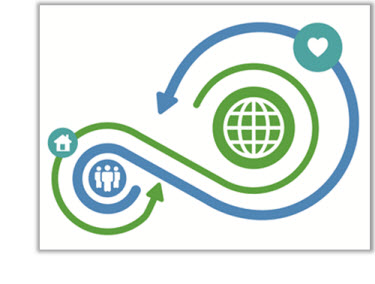-Submitted by: Justin Doyle, Worldwide Sales Training Manager, Enterprise Business Group
Responding to market dynamics in an intensely competitive market can be challenging. Often, changes are necessary to improve your business. However, as you make changes it’s important that your customers remain at the forefront of your decisions. Without your customers, what would you have?
In recent news, Netflix dropped its plan to launch Qwikster. This announcement has spawned many conversations specific to the Netflix business model, but the events offer important marketing lessons with broad applicability. Here’s my take:
1) Don’t increase complexity for your customers. Your customers don’t want additional hassles when using your product. Qwikster introduced more complexity to customers by creating a second portal to access content – Netflix for online streaming and Qwikster for DVD rentals through the mail. Customers were previously able to do both via one website. The user experience was sharp and seamless, and content was the star, rather than the platforms on which programs were accessed. If the ordering and subscription process is complex, you’re losing customers at the front door.

- How does that apply to B2B? In B2B environments, complexity can be even more challenging, whenproducts and services are often offered via multiple channels and distribution methods. Your end customer should be exposed to as little of this complexity as possible. Make sure they’re experiencing your brand as a single voice, without any noise that will kill the sales cycle.
2) Offer additional value with price premiums. Netflix lost 1 million customers in the month after the announcement of a nearly 60% price increase. While Netflix’s CEO cited this increase as a necessary evil to offset postage rate increases and as demand increased for DVDs, this provided a better pricing option for those who only want an unlimited DVD plan, customers weren’t given a compelling value proposition that justified the rate hike. In fact, the Starz network announced that it would be discontinuing its contract as the largest content provider for Netflix at nearly the same time as the price increase. With less to offer, what’s the buyer incentive?
- How to do it right: When you’re introducing new products to the market you need a compelling value proposition that gives your customers more than they had before if the cost is at a premium.
3) Listen to the voice of your customer. Netflix couldn’t have gotten this point more right. The Netflix decision to halt the Qwikster‘s launch within a month was from listening to what their customers were saying. Quick response to customer feedback is key to ensuring you’re delivering the right products to meet their requirements.
- It’s easier than you think: With today’s technologies, you don’t need to rely on traditional feedback channels to get in on the conversation. Put your ear to the ground using Facebook, Twitter, and other social media portals for candid feedback on how your business is perceived. Once you’re sure of the message, success is dependent on how nimbly your organization can flex its business model to meet the needs of the market.
Following the Qwikster incident, we as marketers can take this as an opportunity to learn and improve our own practices to avoid pitfalls like this in our businesses.
What lessons have you learned from Netflix and Qwikster?



Bank of America also listened to the voice of its customer and is now rescinding its policy to impose monthly debit fees. As a result, of its decision, thousands of customers have closed their accounts and opted to take their banking needs to credit unions. During tough economic times, consumers again prove that they are willing to change their behavior and cancel a service if they feel that a price increase is unfair and unjustified. Companies should heed this warning.